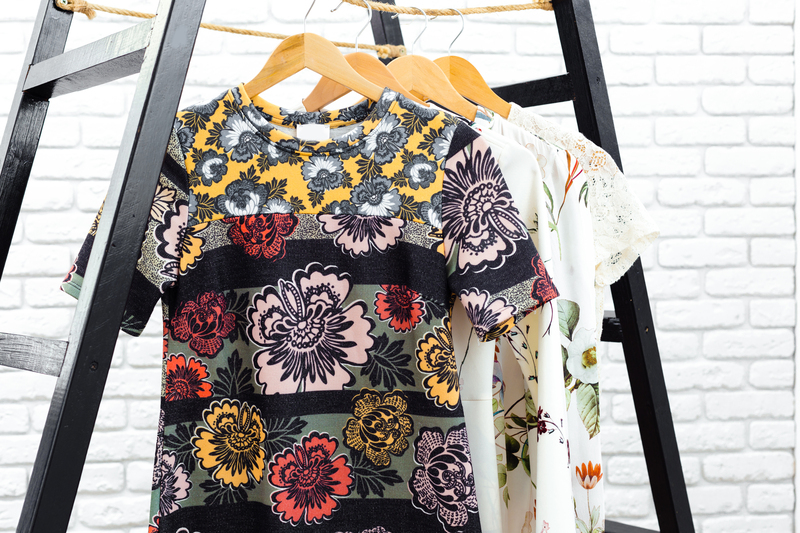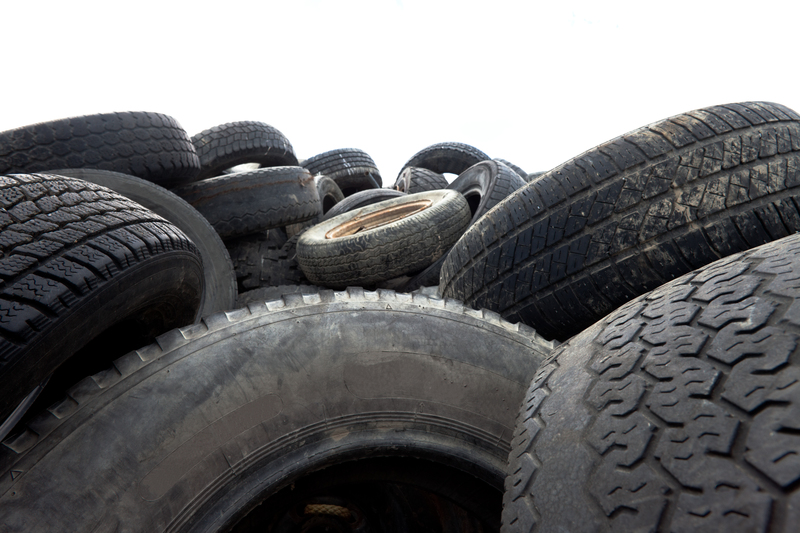Avoid Common Mistakes with Our Skip Hire Tips
Posted on 19/06/2025
Avoid Common Mistakes with Our Skip Hire Tips
Skip hire services are a convenient and cost-effective solution for handling large quantities of waste, whether you're renovating your home, landscaping your garden, or managing a construction project. However, making the most of your skip hire requires proper planning and an understanding of potential pitfalls. In this comprehensive guide, we'll share expert skip hire tips to help you avoid common skip rental mistakes and ensure a smooth, hassle-free experience. This article also dives deep into hiring a skip, best practices, and sustainable waste disposal methods to maximize your project's efficiency.

Why Skip Hire is Essential for Your Project
Hiring a skip is not just about removing rubbish; it's about ensuring the safe and effective management of waste. Homeowners, contractors, and business owners all find skip hire to be a practical investment in tidiness, safety, and compliance with local regulations. Skip hire professionals can help segregate waste, prevent environmental hazards, and save significant time during clean-ups.
Top Mistakes People Make When Hiring a Skip
Without the right information, many people unintentionally make avoidable errors when they hire a skip. Let's examine these common mistakes and how you can steer clear of them.
1. Choosing the Wrong Skip Size
Selecting an appropriately sized skip is crucial. Ordering a skip that's too small can lead to extra costs and wasted time if you need to hire an additional skip. Oversized skips, on the other hand, can increase your expenses unnecessarily.
- Mini skips (2-3 cubic yards): Ideal for small home clear-outs.
- Midi skips (4-5 cubic yards): Perfect for minor renovations.
- Builders skips (6-8 cubic yards): Suitable for most construction projects.
- Large skips (10-16 cubic yards): Best for bulky waste or complete house clearances.
Skip sizing tip: When uncertain, it's often best to go one size larger than you think you need.
2. Overfilling Your Skip
It's tempting to stack waste above the rim, but overfilled skips pose safety risks, and many skip hire companies legally cannot transport them. Plan your waste disposal and break down larger items to maximize the space, ensuring you stay within the 'fill line'.
3. Disposing of Prohibited Items
Not all waste items are allowed in skips. Banned materials include:
- Hazardous waste (asbestos, batteries, solvents)
- Electrical appliances (fridges, TVs, computers)
- Tyres, gas cylinders, and paint tins
- Medical waste or chemicals
Disposal of these items in a skip can result in fines or additional removal charges. Always check with your local skip hire provider for a complete list of restricted materials.
4. Forgetting About Permits
If you need to place your skip on a public road, pavement, or council-owned land, you'll usually require a skip hire permit from your local authority. Failing to obtain this can result in fines or forced removal. Most skip companies can help you arrange the necessary paperwork, but don't assume it's included.
5. Not Planning for Access and Space
Ensure there is sufficient space on your property for the skip lorry to safely deliver and retrieve the skip. Check for overhead wires, narrow alleys, and slope gradients. Inform your provider of any potential access issues before booking.
6. Neglecting to Compare Skip Hire Prices
Prices for skip hire can vary based on distance, size, rental duration, and company. Shopping around can save you money. Make sure your quote includes VAT, pickup, and disposal fees to avoid hidden costs.
7. Ignoring Weight Restrictions
Every skip has a maximum weight limit. Overloading your skip--especially with heavy waste like soil, rubble, or concrete--can result in extra charges or even a refusal to collect it. Ask your provider for guidelines specific to your selected skip size.
8. Mixing Waste Types Incorrectly
Avoid mixing general waste with hardcore, plasterboard, or garden waste. Strict segregation rules apply to ensure proper recycling and to avoid contamination fees.
Essential Skip Hire Tips for a Smooth Experience
Book Your Skip in Advance
Don't leave booking until the last moment! Especially in busy seasons, skips may be in high demand. Booking ahead ensures you get the size and drop-off date you require.
Estimate Your Waste Volume Carefully
List the items you plan to dispose of and estimate their volume. If you're undertaking an ongoing project, consider whether multiple or larger skips will serve you better than several smaller ones.
Sort Waste as You Load
For more efficient skip loading, group similar materials together. Heavier objects should go in first, with lighter or bulky items on top. Flatten boxes and dismantle furniture to maximize space.
Ensure Safe Skip Placement
Place your skip on level, solid ground, avoiding soft grass or gravel that could sink beneath heavy weight. Keep the skip accessible but out of the way of daily foot traffic or vehicles where possible.
Communicate with Your Provider
Be transparent about the type and amount of waste. If you're unsure whether an item can go in the skip, always ask! Professional providers want to help you stay within the rules and avoid unnecessary charges.
Consider Sustainability
Many modern skip hire companies aim to recycle as much waste as possible. Check if your chosen provider is committed to redirecting landfill waste and supporting local recycling efforts. Whenever possible, remove reusable or donatable items before disposing of your rubbish.
The Benefits of Effective Skip Hire
- Time efficiency: A hired skip on-site means less time driving to the dump or recycling centre.
- Safety: Proper containment of debris reduces hazards for your family or workers.
- Environmental responsibility: Licensed services recycle as much material as possible.
- Compliance with local laws: Professional skip hire protects you from fines by ensuring correct disposal practices.
- Cost control: Choosing the right skip size and avoiding extra charges keeps your project within budget.
Frequently Asked Questions about Skip Hire
How long can I keep the skip?
Most providers offer skip hire for a standard period--usually 7 to 14 days. Extensions are possible but may incur additional fees. Always check the terms when booking.
What happens to my waste after collection?
Reputable skip hire firms sort collected material at licensed waste transfer stations, extracting recyclables and disposing of non-recyclable material responsibly.
Can a skip be placed on my driveway?
Yes, provided your driveway is wide enough to accommodate the lorry and the skip's weight. Protect delicate surfaces by laying down wooden boards beneath the skip.
Can I move the skip once delivered?
No. Once placed, skips must remain where they are for health and safety reasons. Always confirm placement details in advance.

Conclusion: Get the Most Out of Your Skip Hire
Successful skip hire is about more than just ordering and filling a container. By understanding booking policies, local regulations, and sustainable disposal practices, you can avoid common skip hire mistakes and make your project more efficient and eco-friendly.
To summarize our top skip hire tips:
- Plan ahead and estimate your waste accurately.
- Choose the right skip size for your project.
- Be aware of and respect skipped item restrictions.
- Arrange for permits if placing skips on public property.
- Communicate openly with your skip hire provider.
- Prioritize recycling and eco-friendly disposal options.
Armed with these skip hire best practices, you can approach your next waste disposal project with confidence--minimizing hassle, saving money, and protecting the environment. For any additional questions or specialized advice, always consult with your local skip hire experts.
Need Help? Get in Touch with Local Skip Hire Specialists
Ready to book a skip or need more tailored advice? Contact your nearest trusted skip hire company. With professional guidance and our expert skip hire tips, you'll avoid the most common pitfalls and ensure your waste is managed safely and legally.

 020 3859 5574
020 3859 5574 020 3859 5574
020 3859 5574




 House clearance
House clearance Rubbish collection
Rubbish collection Do you have a waste build-up in your home that you need taken care of or cleared out? We provide top quality home clearance services in the...
Do you have a waste build-up in your home that you need taken care of or cleared out? We provide top quality home clearance services in the... At Junk Removals Services we believe strongly in providing all of our customers with good quality rubbish collection services in London. We understand the...
At Junk Removals Services we believe strongly in providing all of our customers with good quality rubbish collection services in London. We understand the...




